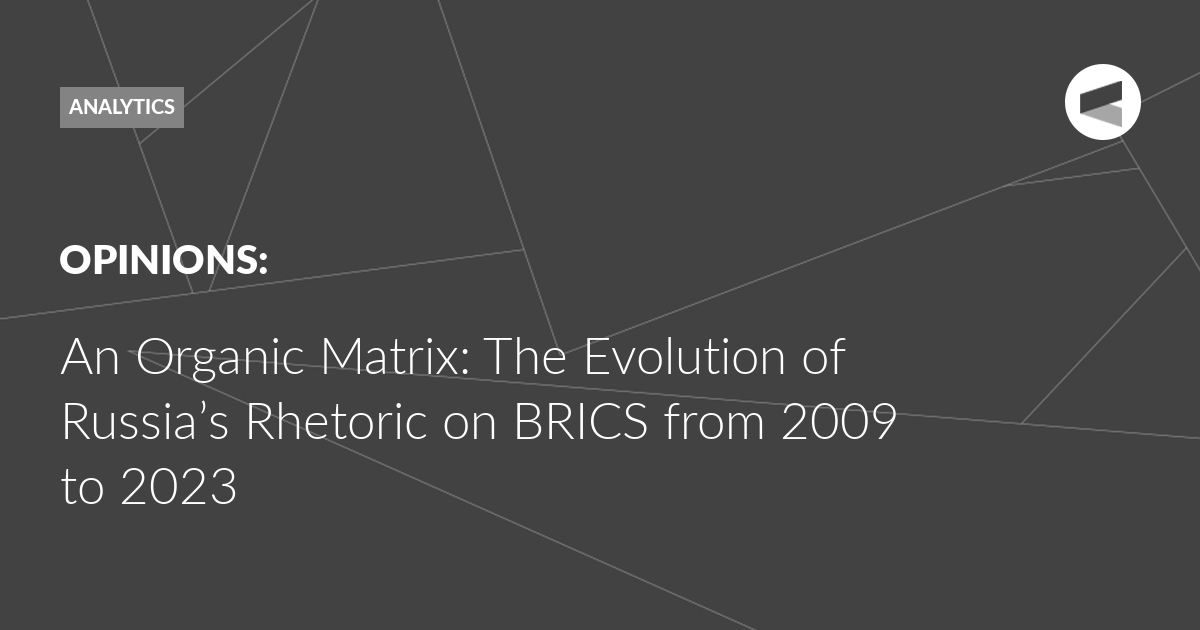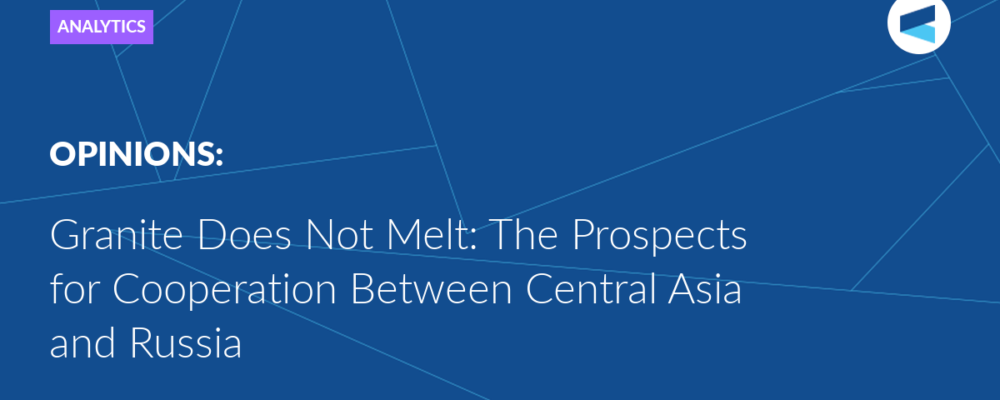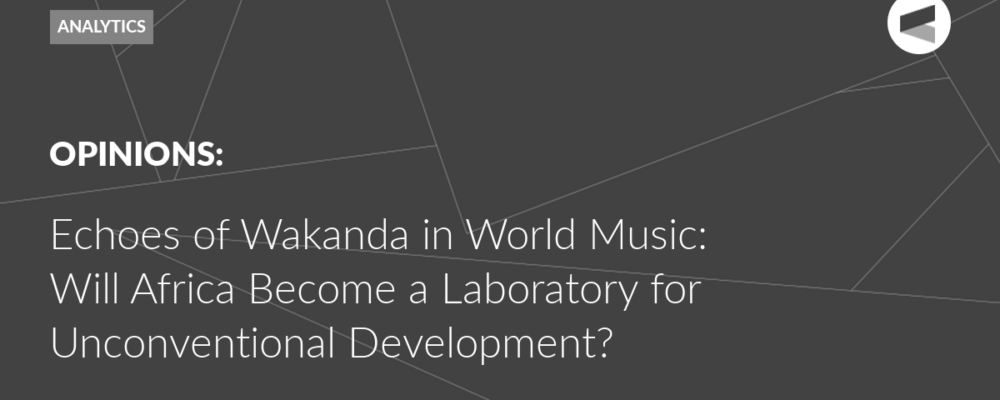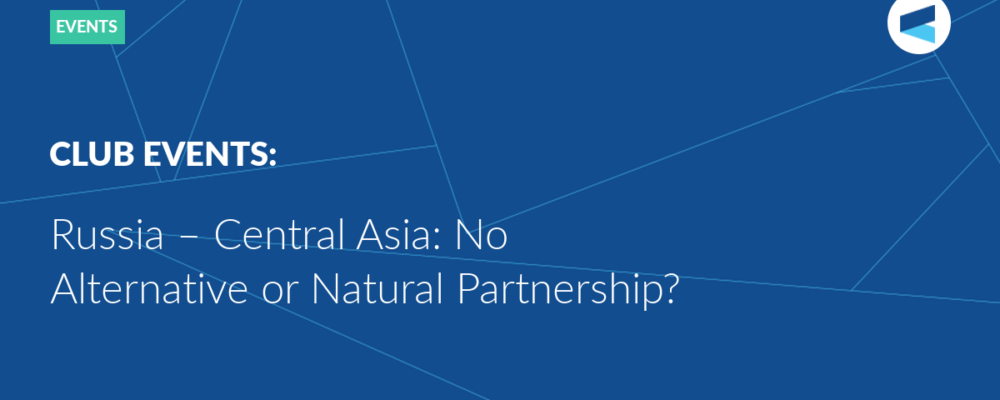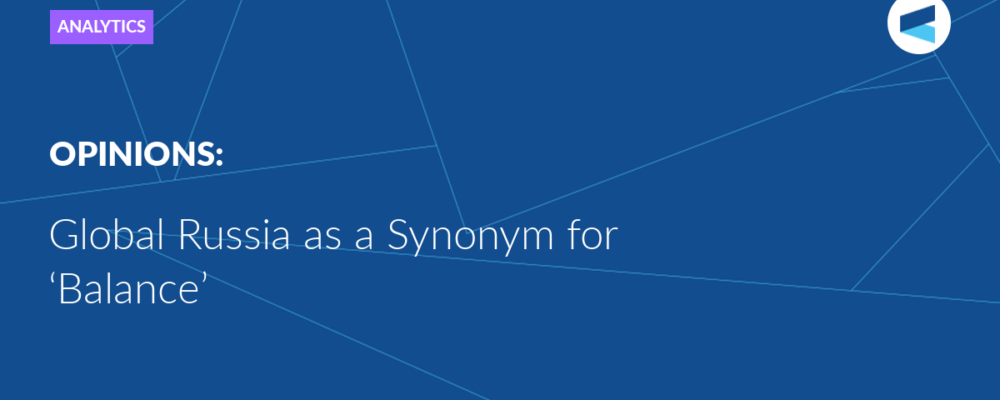What is BRICS?
In terms of ‘what it is’, Russia has demonstrated consistency in its rhetoric over the years, only refining the descriptive vocabulary it uses but not the definition itself. From its start in 2009 until 2023, BRICS has been presented as a natural and organic manifestation of the multipolarisation process the world is understood to be going through. Since its conception, the group has mainly devoted itself to advancing the debate on solutions to common problems faced by all member nations, which in the beginning was mostly related to the 2008 financial crisis, and the question mark it put above the dollar-dominated financial system. It was a platform for open debate, exchanging views, and possible effort coordination in bigger stages, such as UNSC, UNGA and G20.
Its description as ‘natural’ is especially interesting because it contradicts the idea that BRICS is a group that got together with hidden intentions, potentially to overthrow the existing global institutions. Instead, Russian rhetoric emphasises that the very existence of the BRICS mechanism is due to the credibility crisis of the current system, of its hegemon and the exhaustion of its resources, as evidence after the 2008 financial crisis. There was a demand for new platforms that could better resonate with a world order based on a balance of interests instead of the balance of power.That demand was created by the current system’s failure to reform itself, to increase the representation of Global South countries. BRICS, together with other multilateral mechanisms, came to supply that demand and fill this existing void.
Does BRICS represent?
Russian rhetoric, however, has changed since 2009 when it comes to what BRICS represents. Initial statements used to emphasise the informal and non-confrontational nature of the group, but as interactions evolved, BRICS’ scope of action also widened. As hopes of deals with the EU faded, Russian rhetoric on BRICS became less mild, and started to encompass a moral dimension absent in previous statements.
With financial and economic issues still at its centre, BRICS started to be portrayed as a representative of a bigger portion of developing countries, going beyond its own members.The establishment of the New Development Bank and the Contingent Reserve Arrangement between 2013 and 2015 served as further evidence that BRICS was making efforts to build an alternative to the current system.
By 2014, an official announcement stated that the upcoming BRICS summit would also deal with global governance problems, going beyond the usual political coordination on mostly economic and financial issues. The topic of expansion was first touched on, although temporarily dismissed. In the same year, Minister of Foreign Affairs Sergey Lavrov advocated for increasing integration between BRICS and other regional institutions such as the African Union, NEPAD and other sub-regional African organisations, while also highlighting other areas of cooperation beyond the economic sphere, using the meetings of BRICS countries’ foreign, health, and agriculture ministers as examples.
The previously mentioned moral dimension makes its appearance in a statement by Lavrov during a news conference in 2015, where he asserts that BRICS rules are fully committed in complying with the requirements of the 21st century, emphasising equality and a culture of consensus building as the new foundations of IR.
From this point forward, BRICS has started to be portrayed as a reference and an alternative for other Global South nations that share similar dissatisfactions, not only with the current system but also with how it failed to enforce the rules set forward and agreed by all via the UN Charter. Being the new platform advocating for the rules agreed upon by all gave BRICS a moral privilege against the credibility crisis faced by the Western-dominated structure.
The rhetoric shifted from the early emphasis on the centrality of the United Nations to the centrality of the UN Charter, leaving the UN as an institution in the background.
The final and most recent terminology applied was the term ‘matrix’, which is used to describe how BRICS has evolved to become a complex mechanism of interactions, involving both multilateral, bilateral, regional and sub-regional levels, all happening under one roof. The concept of a ‘matrix’ used by Russian officials refers to the complex web of interactions that BRICS has fostered. This suggests the group is not just a political grouping but a dynamic network that adapts to various global challenges, and this idea of an organically grown multi-layered matrix can be interpreted to reinforce two key points: that the foundations of BRICS are solid since it grew in a non-forced manner; and that it has global dimensions, reach and credibility.
Russian rhetoric has in many instances also emphasised the complementary roles of both multilateral and bilateral interactions, arguing that the new dynamics inside international relations will achieve new levels of complexity where multilateral, bilateral, regional and sub-regional interactions will happen simultaneously. In turn, multipolarity will lead to the appearance of new centres of power that will have a crucial role locally and relevant voices globally.
Conclusion
Understanding this shift in Russian rhetoric about what BRICS is and especially what it represents provides critical insights for policymakers. As BRICS continues to evolve, those engaging with the group should consider how Russia’s emphasis on multipolarity and moral legitimacy could influence future initiatives, from development new financing infrastructure to global governance reforms. While it remains too early to predict the precise future of BRICS, Russia’s framing of the group as an ‘organic matrix’ offers compelling evidence of its belief in BRICS’ potential to reshape global governance. As the group expands, it remains to be seen if the matrix model will continue to hold or will face growing strain from divergent internal interests.
The Valdai Discussion Club was established in 2004. It is named after Lake Valdai, which is located close to Veliky Novgorod, where the Club’s first meeting took place.
Please visit the firm link to site


